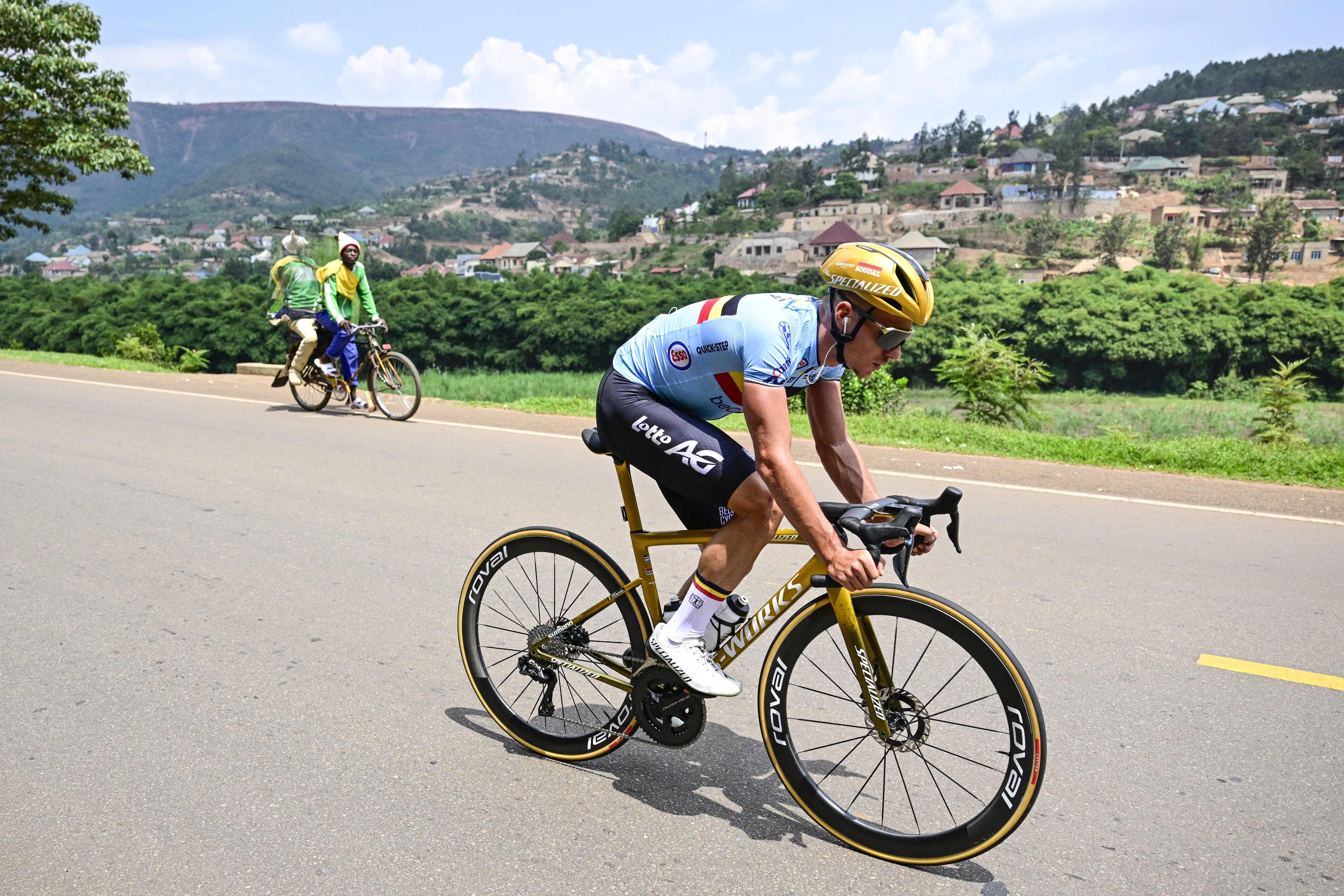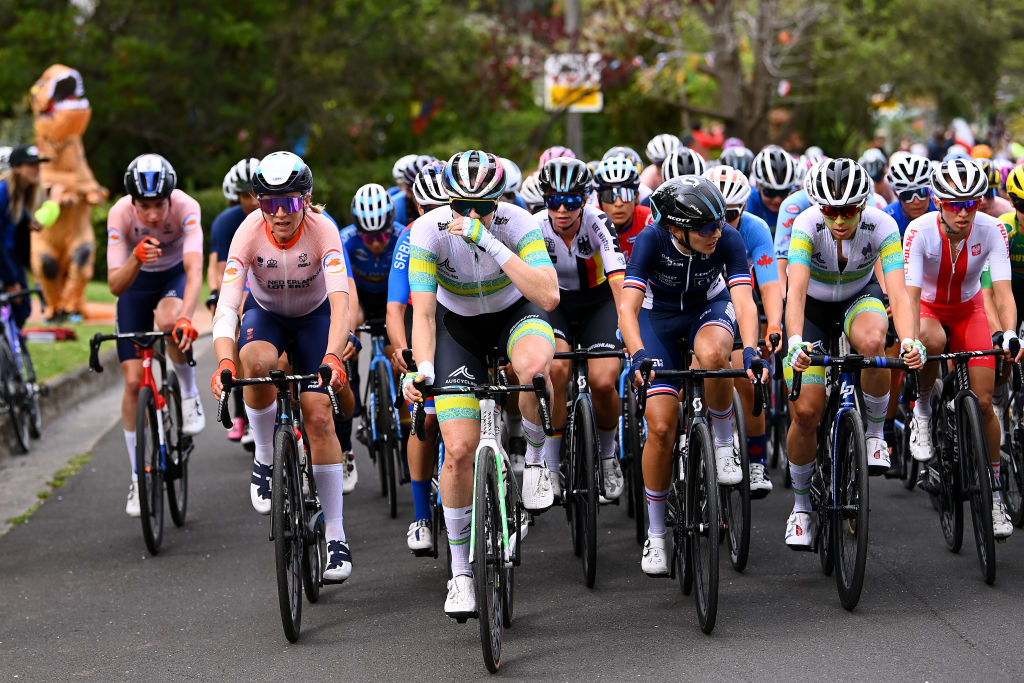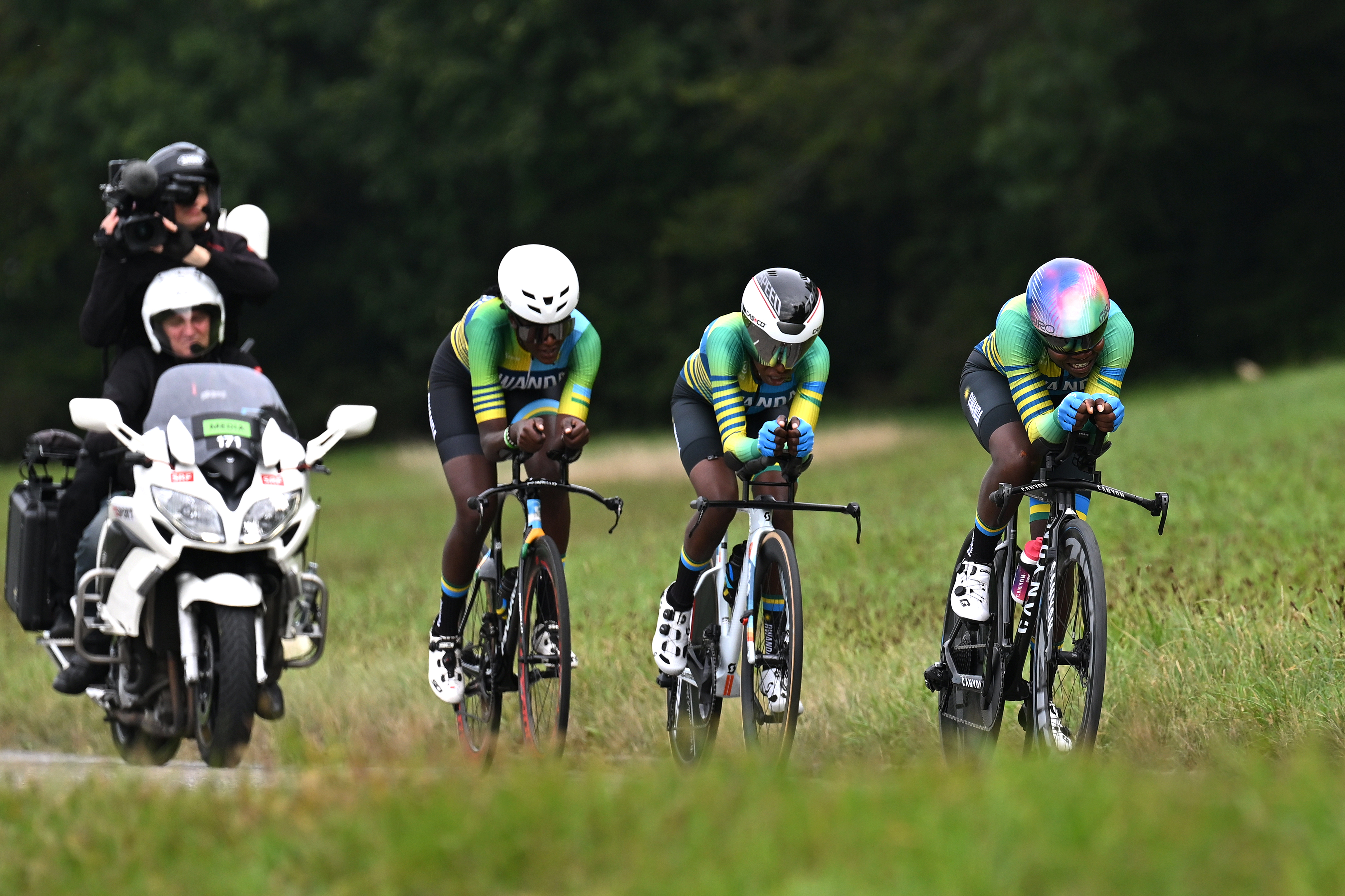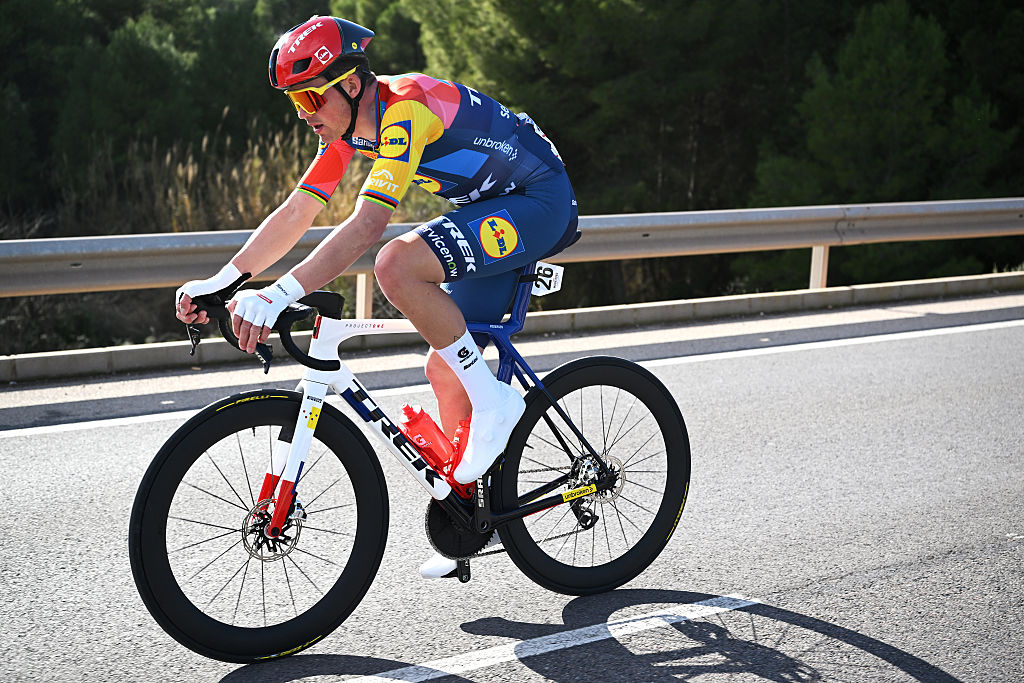Truly global World Championships – The future of cycling, or too many complications? Cyclingnews writers weigh in
Road World Championships are visiting more locations increasingly far away from mainland Europe, but this comes with positives and negatives

The latest race content, interviews, features, reviews and expert buying guides, direct to your inbox!
You are now subscribed
Your newsletter sign-up was successful
In recent years, the UCI Road World Championships have been becoming more global in their locations, visiting countries around the world, and increasingly further away from Europe, where cycling events have long been focused.
From the United States in 2015, Qatar in 2016 and Australia in 2022, the European grip on the World Championships seems finally to be loosening – after the event only took place outside of Europe three times between 1922 and 2000, and still only five times in the 21st century.
This year, the World Championships will reach another milestone with the road events held in Africa for the first time ever, more specifically Kigali, Rwanda. This will become the sixth continent to have hosted Road Worlds – only Antarctica will remain after this., which doesn't seem like a likely destination, but who knows?
The trend of Worlds well outside of cycling's traditional heartlands is set to continue, too, with a return to Canada for 2026, and Abu Dhabi hosting a second Middle Eastern Worlds in 2028. The event is now one that truly takes place all over the world.
In many ways, this is a very positive thing. Cycling has been very Euro-centric for a very long time, and this trend of globalisation is a clear sign of the sport growing and diversifying, with more and more regions wanting to host the biggest races.
However, in practical terms, these far-flung events have not been without complications, especially in the eyes of the European nations that dominate the discourse, with expenses, logistics and other concerns proving challenging.
With the Kigali Worlds about to get underway, we posed the question to the Cyclingnews team: what do you think about these World Championships that are breaking out of the European norm?
The latest race content, interviews, features, reviews and expert buying guides, direct to your inbox!
Some of us are strongly in favour, some of us had ideas for improvements, and we all had different reasons for our verdicts. Here's what we had to say – don't forget to tell us what you think in the comments below, too!
No whining allowed – Simone Giuliani (Australian Editor)
As someone based in 'far-flung' Australia there is nothing more annoying than teams and riders from European-based nations complaining because once in a blue moon they have to travel to another part of the globe to compete in a race with 'world' in the title, be it the WorldTour or World Championships. Yes it is expensive to go a long way, yes it is inconvenient and time-consuming. but that is the everyday reality so many top-level cyclists that aren't from Europe face.
It's also about more than giving some riders a rare chance to compete closer to home and others an understanding of what it means to not usually have that luxury – taking a World Championships to spectators, potential future stars of the sport and time zones that don't usually get the chance to watch top-level cycling in person is crucial for a truly healthy global sport. So yes, of course World Championships need to stray from Europe every now and then – it's doing the future of the sport a disservice if they don't.

A good idea, if the vibes are there – Will Jones (Senior Tech Writer)
My view on where the World Championships are held is that it should be somewhere where there is a sufficient fanbase to make the overall vibe good.
One only has to tune in to the UAE Tour or the AlUla Tour to see endless empty roads with no fans, and consequently no atmosphere and that shouldn’t be the case for a race that is effectively the culmination of the season (yes, I know there’s still Lombardy…).
From a purely vibe-based assessment I think Rwanda passes, and I suspect it’ll be a great event from a spectacle standpoint, as well as going some way to making cycling slightly less white and Euro.
My word limit for this doesn’t quite allow a nuanced discussion about the rights of LGBTQ+ folks in Rwanda, but it bears mentioning nonetheless, as it would do for any World Championships based in the Middle East.
Keep it global – Jackie Tyson (North American Production Editor)
Keep the 'world' in World Championships. The UCI should continue to actively promote cycling as a sport, and a career opportunity, to people of all socio-economic backgrounds by sharing a competition like the Road World Championships around the globe.
Recognising the best athletes on the planet is not just about representation of countries, but showcasing the top riders to regions around the planet with live racing, not a screen on a mobile device or a screen. This makes it more personal, igniting more diversity in the men's and women's pelotons for the future.
Otherwise, it should just be the European Championships. Period.
More help for host nations and federations – Tom Wieckowski (Tech Writer)
The ability to choose your spot at the side of the road and watch the action at the World Championships, for free, is beloved by cycling fans, and the spectacle creates new ones. Everyone should be able to enjoy it.
The thought of the Worlds being held all over the globe each year is an exciting one. In an ideal world, I would like to see road racing's blue riband events held comfortably all over the planet.
Countries bid to host a World Championship and must find financial backing if successful. Nations also need to cover costs; the 2017 Bergen worlds in Norway resulted in bankruptcy, for instance, and some nations appear to struggle to send entire squads to some locations.
It leads to some big questions, but could more money be found from broadcasting rights and sponsorship deals to help host a Worlds, and to help federations send as many athletes as possible to compete without worrying about the costs?

The cons can't be ignored – Matilda Price (Assistant Features Editor)
As much as I agree that this is the World Championships, there are also clear logistical downsides to some locations, not least the environmental impact.
The reality is that most cyclists – European or not – are based in Europe, as are many of the journalists, mechanics, DSs, UCI officials, the list goes on, so to have hundreds of people flying halfway around the world every year does raise questions about sustainability and cycling's already poor impact on the environment. For a sport where everyone already travels by plane so much, more than footballers or rugby players, we should be cautious about adding more to our carbon footprint.
What's more, if the World Championships start becoming about taking money from countries with questionable stances on human rights or LGBTQ+ issues, for example, I don't know how much they're actually spreading inclusion and diversity in cycling.
Let's focus on taking the Worlds to new places where cycling is flourishing, like Rwanda, but not novelty locations for the sake of it.
Breaking down barriers requires action – Kirsten Frattini (Deputy Editor)
Stakeholders and authorities in the sport of cycling have long talked about the importance of breaking down the historical, cultural, socioeconomic and structural barriers that have prevented it from developing as a viable sport in nations outside of mainland Europe.
Although the sport's governing body implemented the 'globalisation of cycling' many years ago, with its policy (and coined phrase) that attempts to expand the sport beyond Europe through its international calendars and other development programmes such as the World Cycling Centre, the fact is that it's taken more than a century for the Road World Championships to reach Africa.
Many aspects of the current sport of cycling still require change and progress, and further expansion into global communities is much needed at the grassroots and higher levels. Change takes time, and if cycling truly wants to foster a more diverse and inclusive sport worldwide, it starts with venturing outside of Europe.
Subscribe to Cyclingnews to unlock unlimited access to our coverage of the first-ever UCI Road World Championships on African soil. Our team of journalists will bring you all the major storylines, in-depth analysis, and more directly from the action in Rwanda as the next rainbow jerseys are decided. Find out more.
Matilda is an NCTJ-qualified journalist based in the UK who joined Cyclingnews in March 2025. Prior to that, she worked as the Racing News Editor at GCN, and extensively as a freelancer contributing to Cyclingnews, Cycling Weekly, Velo, Rouleur, Escape Collective, Red Bull and more. She has reported from many of the biggest events on the calendar, including the Giro d'Italia, Tour de France Femmes, Tour of Flanders and Paris-Roubaix. She has particular experience and expertise in women's cycling, and women's sport in general. She is a graduate of modern languages and sports journalism.
You must confirm your public display name before commenting
Please logout and then login again, you will then be prompted to enter your display name.
